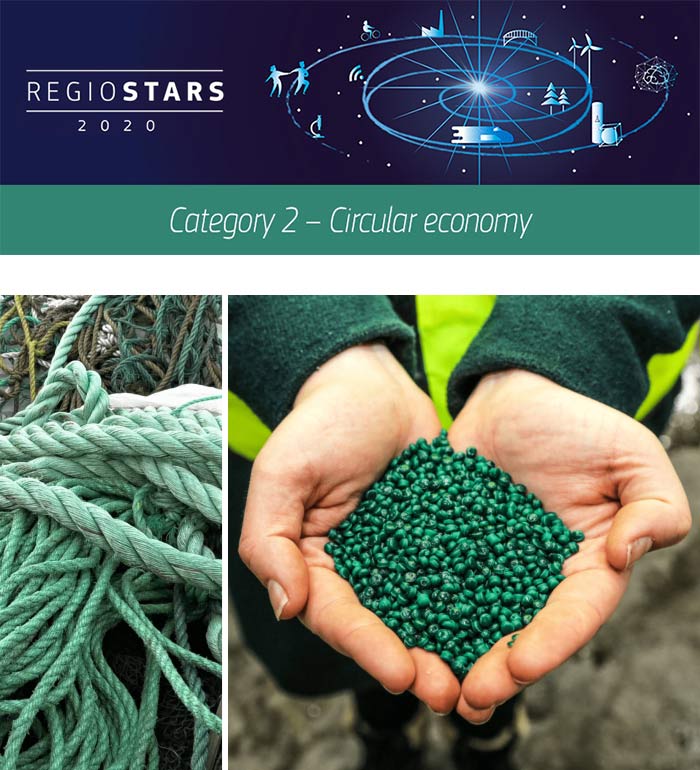An initiative based in the Northern Periphery and Arctic regions of Europe is cleaning up the environment while helping local SMEs turn waste into new opportunities. Blue Circular Economy (BCE) is a transnational project that supports the transformation of discarded fishing gear and marine plastic waste into recycled products. The project covers some of the most distant oceans and seas around Norway, Greenland, Ireland, and the United Kingdom.
- 09 November 2020
Blue Circular Economy’s mission is to generate sustainable business opportunities offered by abandoned, lost or otherwise discarded fishing gear and marine plastic waste. The vision is to focus on the full product life-cycle, upskilling SMEs to create resource-efficient businesses offering products and services from marine waste and supporting transferability of techniques.
BCE is helping SMEs in the high north to develop and market innovative products and services created from nets and ropes and other materials that have been abandoned or discarded. This peripheral region is dominated by fishing, which means there is huge potential to convert plastic marine waste into profitable resources.
By taking a circular approach, the project helps SMEs find ways to transform otherwise unwanted and polluting materials into a range of clean, sustainable items such as trainers, clothing, sunglasses and building materials.
Aiding innovation
To help participating companies innovate and extend their market reach, the project has established three transnational clusters for the recycling of fishing gear. Two of the clusters are geographic, covering Norway and Ireland, while the third spans the entire Northern Periphery and Arctic area.
The project team is working with SMEs to create circular business models and marketing strategies that embrace both environmental and economic concerns. The goal is to create value chains and build momentum around the re-use of fishing gear as a viable and sustainable businesses proposition.
Finding markets
BCE stimulates demand for the new products and helps SMEs break into new markets. This is being achieved by offering advice on commercialising products and by creating an eco-label for goods made from recycled fishing gear.
To help realise production goals, the BCE is linking participating SMEs to enabling technologies such as 3D printing, sensors and artificial intelligence. Additionally, the project is developing a library of webinars and video content to transfer knowledge and best practice.
The BCE partnership brings together R&D institutions and business support organisations in Ireland, England, Scotland, Norway and Greenland. Port authorities and municipalities also support the project’s work. Activities carried out through BCE contribute to the EU’s Water Framework Directive and the Strategy for Plastics in the Circular Economy.
Total investment and EU funding
Total investment for the project “Blue Circular Economy” is EUR 1 690 661, with the EU’s European Regional Development Fund contributing EUR 1 012 529 through the Northern Periphery and Arctic Operational Programme for the 2014-2020 programming period. The investment falls under the priority “Environment and resource efficiency”.

